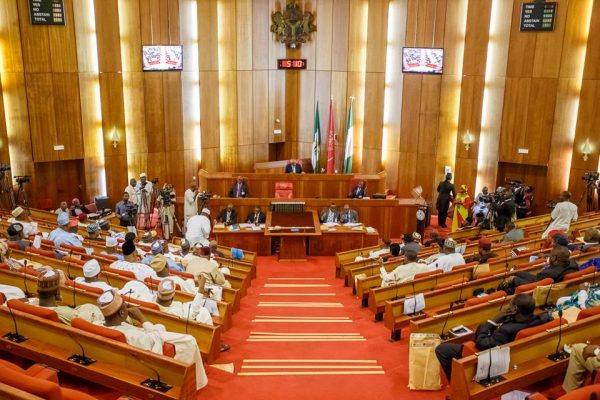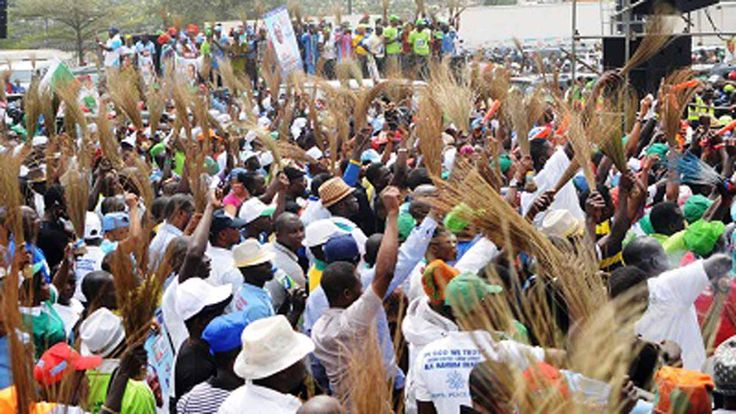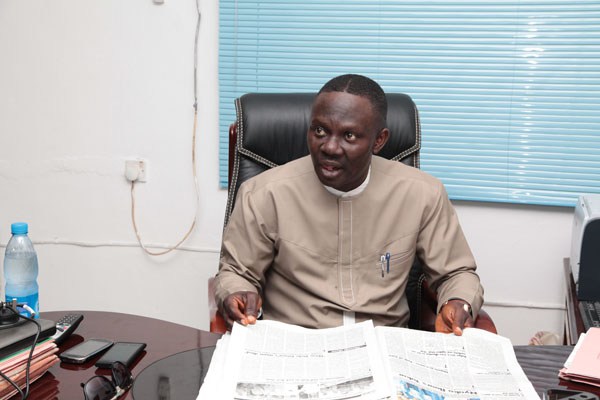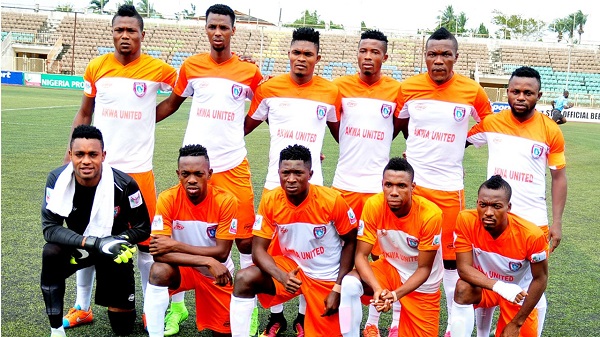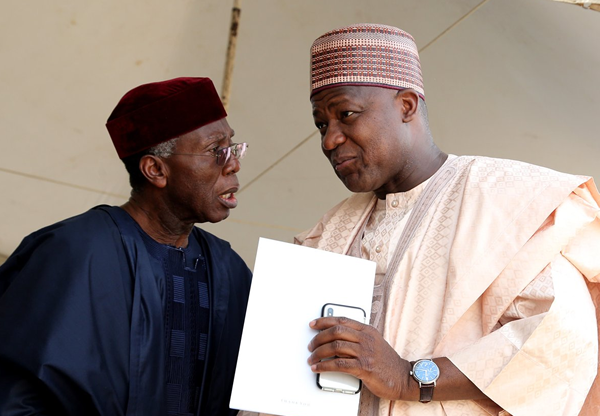BY AUSTIN MAHO
Stakeholders in the media industry under the auspices of the Nigerian Press Organisation, NPO, recently expressed strong opposition to a bill at the National Assembly seeking to repeal and re-enact the law establishing the Nigerian Press Council.
The NPO, in its opposition to the bill, described it as illegal and amounting to criminalisation of journalism. Specifically, in its statement it noted that: “The proposed bill is unconstitutional as it runs against the principles and tenets of the rule of law and is actually sub judice, given that a case on the subject-matter is still pending in the highest court of the land – the Supreme Court – in view of which the bill should not have been drafted in the first instance. It further said that, “the bill is, for all intents and purposes, draconian and anti-press freedom being an amalgamation of the obnoxious Public Officers Protection Against False Accusation Decree No. 4 of 1984 and the Newspapers Registration Decree 43 of 1993, both vestiges of the dark days of military rule and, therefore, incurably and irreparably bad, being also inconsistent with values of our democratic society, and concluded that “the bill seeks to criminalise journalism practice despite the fact the laws of the country already have enough provisions and avenues for seeking legal redress; that the bill smacks of an attempt at undue interference in the operations of the media in Nigeria as businesses registered under the relevant laws of the federation; and that the bill seeks for the Nigeria Press Council to usurp the powers of the courts by assuming extra-judicial powers.”
This was the position of the arrowheads of the NPO represented by the President of the Newspaper Proprietors’ Association of Nigeria and President of the NPO, Mr Nduka Obaigbena, at a public hearing held in Abuja by the Senate Committee on Information and National Orientation on the bill.
Advertisement
The contentious bill seeks to establish an Act to repeal the Nigeria Press Council Act 1992 (as amended) and to enact the Nigerian Press Council Act 2018. The presentation was jointly signed by Obaigbena for the NPO and NPAN; President, Nigerian Guild of Editors, Funke Egbemode; President, Nigeria Union of Journalists, Waheed Odusile; and Chairman, Broadcasting Organisation of Nigeria, John Momoh. Other signatories are the Director, International Press Centre, Lanre Arogundade; Executive Director, lnstitute for Media and Society, Akin Akingbulu; and Director, Media Law Centre, Richard Akinnola.
How these groups of people came to represent the voice of over 400,000 practising and non- practising journalists in Nigeria is the subject of another day. However, they don’t represent me, and I am sure this also applies to the vast majority of media practitioners across the country whose views were not sought before the statement was issued on their behalf. This on its own speaks volume of the unbridled fascism, hegemony and dictatorship that have taken over decision-making process at the highest echelon of journalism practice in Nigeria. Ironically, the statement talks largely of democracy, due process and constitutionality!
Be that as it may, the statement issued by the NPO is rather unfortunate because what is really at stake here is press responsibility which ought to be the concern of all stakeholders. This statement condemns the bill without offering an alternative; it is carefully orchestrated to demonise the bill without paying attention to its key benefits to the Nigerian media landscape which is currently convulsing for lack of acceptable, identifiable regulatory framework and the prevalence of unethical practices especially by gate-crashers who call themselves journalists.
Advertisement
The press is the watchdog of society and expected to act responsibly at all times in the discharge of its duties. The question is: does it? There is the recurring question of who watches the watchdog? The Press Council amendment bill is meant to answer this question, in the interest of practitioners and the public it serves.
Nothing can be further from the truth, to say that the bill is a criminalisation of journalism and anti-press freedom. Comparing it to decree No. 4 of 1984 and the Newspapers Registration Decree 43 of 1993, is a clever attempt to create fear in the minds of practitioners and the unsuspecting public, who are not likely to read the bill for themselves before joining the bandwagon of “anti-press law”
Expectedly, the NPO strategy of turning public sentiment against the bill has worked, even a good proportion of media practitioners are now opposed to the bill without the understanding that the bill is actually designed to protect their interest and the profession. Specifically to protect them from the high-handedness of media owners, who consistently usurp professionalism in editorial decisions, who pursue personal interests as against the national interest, hire and fire at a whim, owe staff salaries running into several months and years with impunity and reign supreme and answerable to no one. Incidentally, they are protected by the same practitioners they have raped to submission because, as we say in the media, “dog no dey eat dog” If you ask me it is about time “dog start eating dog” if we are to correct the malfeasance besetting the profession!
Media owners are on top of the food chain and practitioners at the bottom feeding on what owners occasionally throw at them. That practitioners and the NUJ who are supposed to be at the forefront in the actualisation of this bill are the ones regurgitating the position of media owners and their lackeys is a slap on the face of all professional journalists who have had to endure the humiliation associated with the profession over the years.
Advertisement
Media owners continue to reign supreme unchallenged in the Nigerian media landscape answerable to no one. Government and state institutions have to think twice before taking on a media owner.
Freedom of the press belongs to those who own one! Certainly not the journalist toiling on the field with little or no pay or media consumers who are fed commodified news as objective reality.
The freedom most media owners advocate and defend is the freedom to retain the status quo. Hence they will always come out vehemently against any attempt to regulate the media or institute professionalism or to ensure they run their media outfits as businesses not appendages of their political fiefdoms.
The controversy over the Nigerian Press Council Act has a long history. However what many commentators and media practitioners fail to realise is that the idea of a press council for Nigeria is actually the initiative of the Nigeria Union of Journalists in conjunction with media owners. That was in the days of yore when the NUJ was truly a union of journalists and not the accoutrement of a political party or the errand boys of Newspaper Proprietors Association of Nigeria.
Advertisement
The press council was never a brainchild of government but rather of a former president of the Nigerian Guild of Editors, Alhaji Lateef Jakande, who brought the idea that there was a need for a regulatory body at a congress in Benin in 1972. The NUJ ratified it in its own congress in 1974. Government only came in to give it life in line with the wishes of stakeholders.
The Council is a creation of Nigeria Press Organisation and not government. It draws its powers from the code of ethics of the Nigeria Press Organisation or what is commonly referred to as the journalistic code of ethics and not by any other Act of the National Assembly. The grandstanding of the NPO in opposition to the proposed amendment to the Press Council bill before the National Assembly beats imagination. They oppose without any viable alternative to addressing ethical complaints in the media.
Advertisement
It would be recalled that the Newspaper owners instituted its own court in 2003 to receive ethical complaints against the media, which it called the Ombudsman Mechanism. A retired high court judge in the person of Justice Moronkeji Omotayo Onalaja was appointed to preside over the court and receive petitions from members of the public, but this Mechanism was dead on arrival because the NUJ kicked against it and for good reason because according to it then, “you cannot be a judge in your own case” and for good measure instructed all its members not to subscribe to it. Perhaps the newspaper owners should tell us what became of its intervention through the Ombudsman Mechanism rather than venting its spleen on the Press Council Amendment bill, which from all indications is the only objective and workable solution to instituting professionalism in journalism practices and curtailing the excesses of media owners.
There are grey areas no doubt in the proposed amendment bill, I, however, believe these grey areas can be thrashed out and a harmonious position agreeable to all arrived at rather than throwing away the baby and the bath water. If anything we should be learning from the Lord Justice Leveson judicial inquiry and the far-reaching recommendations it made to the British press following the News International phone hacking scandal of 2011. A major outcome for the British press was a shift towards more layers of regulation rather than an outright deregulation of the media as seemingly being advocated by the statement issued by the NPO.
Advertisement
Austin Maho is a media scholar and practitioner based in Abuja, he can be reached via [email protected]
Advertisement
Add a comment
